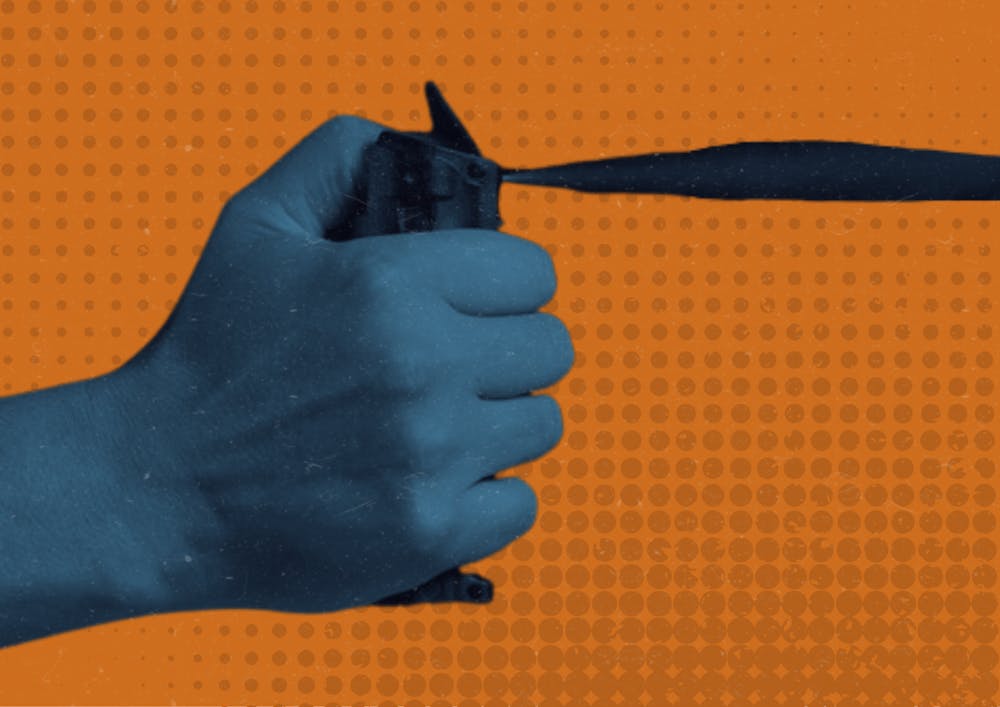This semester, the Student Council once again tabled a resolution that would have called on the University to allow students to carry pepper spray at University events. Conversations around the policy change were promising, but ultimately were delayed so that representatives had ample time to review the current policy with University leaders. Student-initiated calls for change come as a result of growing student safety concerns following the attempted abduction of a female student last October, among other incidents that have occurred on Grounds. In light of these concerns, the University should change their current policy in order to allow students to bring pepper spray to all university sanctioned events.
Current University policy allows students to keep pepper spray in dorms, but bans it from planned events like sports games or class, citing a goal to cultivate a safe environment on Grounds. While there may be reservations about easing restrictions around pepper spray — particularly from those worried about a rise in pepper spray based violence — the reality is that pepper spray is a defensive device with safeguards. For those who use it for purposes other than self-defense, there are existing laws that incur criminal penalties. Moreover, its symptoms, including coughing and inflammation of the eyes, often spontaneously subside within 30 minutes and are nonlethal. In short, it seems unlikely that a more inclusive policy regarding pepper spray would undermine the safe environment the University is so keen to protect.
In fact, the existing policy arguably does more to compromise student safety than any new and more lenient policy on pepper spray would. Right now, effectively, University policy allows pepper spray in places where it is not as useful — dorms — and bans it from spaces in which it might be imminently necessary. Allowing students to keep pepper spray in dorms might be sufficient if students never left their dorm rooms or if all students lived on Grounds. But under current policy, students are prevented from carrying pepper spray to and from most of their daily activities. This forces students attending events or class, irrespective of if they live on or off Grounds, to walk back to their homes alone and largely unprotected.
This is especially concerning given the current trend of crime surrounding the University. In the past two years alone, Charlottesville’s violent crime rate has increased 30 percent. Increasing violent crime rates especially put female students at higher risk of assault and rape while in college. October’s attempted abduction of a female student off grounds crystalized these concerns and raised the question of maintaining student security on and off Grounds. The reality is that the University is not walled off from Charlottesville, nor should it be. Rather, it is intimately intertwined with the surrounding area and the borders that separate these spaces are porous. Current pepper spray policies seem to forget this simple reality. For all these reasons, it is evidently time for the University to act. Anything that can keep students safer should be on the radar of administration, and pepper spray is one of those things.
This policy change should be a no-brainer for University administration, but because the details may be more complicated than students realize, Student Council should be applauded for consulting relevant administrative bodies and officials. Allowing pepper spray would affect all facets of University life by permitting this defense mechanism in every classroom and every stadium. As such, there is a clear imperative for Student Council to be well-informed. In this vein, Student Council is currently contacting impacted departments — such as University Athletics, the Department of Safety and Security and the University’s Policy Office — before moving forward with the resolution. In coordinating with these departments, Student Council will be able to find the best way to ensure that students have pepper spray protection while also accommodating University concerns.
Notably, other Virginia public universities, like Virginia Commonwealth University and even Virginia Tech, allow pepper spray at university events and even sell the defensive device at student bookstores. The fact that the University is so far behind these other institutions is especially concerning considering the difference in crime at these various universities. Blacksburg has seen a steady decline in its own violent crime rate, which is a shocking difference compared to Charlottesville’s steadily increasing violent crime rate. Given this difference in crime rates and policies, the University and Student Council must use these other Virginia schools as a framework to evaluate and implement policy that allows for pepper spray to be carried to University events.
It is the fundamental responsibility of the University to promote policies that protect its student body, something which it has failed to do in relation to pepper spray policies. To put it succinctly, even if the University does outperform Virginia Tech on a number of fronts, we clearly have something to learn from them in terms of safety.
Apal Upadhyaya is an opinion writer who writes about politics for The Cavalier Daily. She can be reached at opinion@cavalierdaily.com.
The opinions expressed in this column are not necessarily those of The Cavalier Daily. Columns represent the views of the authors alone.







